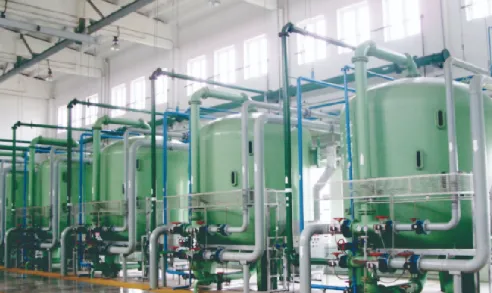
News
Apr . 23, 2025 14:38 Back to list
Polyaspartic Acid: The Sustainable Innovation Transforming Multiple Industries!
As industries shift toward eco-friendly solutions, Polyaspartic acid has emerged as a revolutionary material with exceptional properties and versatile applications. With its unique polyaspartic acid structure, this biodegradable polymer is widely recognized for its role in agriculture, water treatment, coatings, and even medical fields. Leading polyaspartic acid manufacturers are continuously advancing its production, making it a sustainable and high-performance alternative to traditional synthetic polymers. Understanding its physical and chemical properties, biodegradability, and expanding applications highlights why Polyaspartic acid is a game-changer across multiple industries.

Physical and Chemical Properties of Polyaspartic Acid
The outstanding performance of Polyaspartic acid stems from its unique molecular composition. As a water-soluble polyamino acid, it exhibits high thermal stability, excellent solubility in water, and superior film-forming capabilities. The polyaspartic acid structure consists of repeating aspartic acid units, forming a highly functional polymer with excellent chelating properties. This characteristic allows it to bind with metal ions, making it ideal for applications in corrosion inhibition and water treatment.
Additionally, Polyaspartic acid demonstrates remarkable chemical stability under various pH conditions, allowing it to maintain its performance in both acidic and alkaline environments. Unlike conventional synthetic polymers, it does not generate toxic by-products, ensuring environmental safety. These properties make Polyaspartic acid a superior choice for industries seeking sustainable, high-performance materials.
Biodegradability: How Environmentally Friendly is Polyaspartic Acid?
One of the most compelling advantages of Polyaspartic acid is its exceptional biodegradability. Unlike conventional petroleum-based polymers, Polyaspartic acid naturally decomposes into non-toxic substances such as carbon dioxide, water, and ammonia. This makes it an environmentally friendly alternative, significantly reducing pollution and waste accumulation.
Biodegradation studies show that Polyaspartic acid breaks down efficiently in soil and aquatic environments, making it an excellent option for eco-conscious industries. Polyaspartic acid manufacturers are increasingly promoting its use in agriculture and wastewater treatment, where sustainability is a critical factor. The natural degradation process ensures minimal environmental impact, reinforcing Polyaspartic acid as a preferred choice for green technology solutions.
Application Fields of Polyaspartic Acid: Where is it Used?
The diverse applications of Polyaspartic acid make it a valuable asset in numerous industries. Its water solubility, film-forming properties, and non-toxic nature allow it to be used in:
In the agricultural sector, Polyaspartic acid is utilized as a biodegradable soil conditioner and fertilizer additive. It enhances nutrient retention and improves water absorption, ensuring better plant growth and higher crop yields. Unlike traditional fertilizers, Polyaspartic acid prevents nutrient leaching, reducing environmental contamination and increasing efficiency.
Due to its excellent chelating properties, Polyaspartic acid is widely used in water treatment processes to prevent scale formation and corrosion in industrial systems. It effectively binds with calcium, magnesium, and heavy metal ions, making it a powerful alternative to conventional water treatment chemicals. Additionally, its biodegradability ensures that water sources remain uncontaminated.
The polyaspartic acid structure makes it an excellent film-forming polymer, which is why it is widely used in industrial coatings. Its superior adhesion, UV resistance, and chemical stability ensure long-lasting protection for metal surfaces, bridges, and marine structures. Many polyaspartic acid manufacturers are now developing eco-friendly coatings that offer enhanced durability without compromising environmental safety.
In the medical field, Polyaspartic acid is gaining traction for its use in drug delivery systems and biodegradable plastics. Its non-toxic, biocompatible nature makes it suitable for medical implants, wound dressings, and pharmaceutical formulations. As the demand for sustainable materials grows, Polyaspartic acid is becoming an integral component in biodegradable plastic production, helping to reduce plastic waste.
Why Choose Leading Polyaspartic Acid Manufacturers?
Selecting high-quality Polyaspartic acid is essential for maximizing its benefits across industries. Leading polyaspartic acid manufacturers use advanced synthesis techniques to ensure purity, consistency, and performance. Whether for industrial coatings, agriculture, or water treatment, choosing a reputable supplier guarantees superior-quality Polyaspartic acid that meets industry standards.
Additionally, manufacturers are investing in research and development to expand the applications of Polyaspartic acid, exploring its potential in biodegradable packaging, textile treatments, and renewable energy sectors. As sustainability becomes a priority, working with top-tier polyaspartic acid manufacturers ensures access to innovative, eco-friendly solutions tailored to specific industry needs.
FAQs About Polyaspartic Acid
What makes Polyaspartic Acid different from conventional polymers?
Unlike synthetic polymers, Polyaspartic acid is biodegradable, water-soluble, and environmentally friendly. Its unique polyaspartic acid structure allows it to function as a highly effective chelating agent, scale inhibitor, and agricultural enhancer, making it a superior alternative to traditional materials.
How biodegradable is Polyaspartic Acid?
Polyaspartic acid naturally degrades into carbon dioxide, water, and ammonia, making it highly biodegradable. This ensures minimal environmental impact, making it ideal for industries seeking sustainable and eco-friendly solutions.
What are the main applications of Polyaspartic Acid?
The applications of Polyaspartic acid include agriculture, water treatment, industrial coatings, medical fields, and biodegradable plastics. Its versatility and non-toxic nature make it a valuable asset across multiple industries.
Why is Polyaspartic Acid preferred in water treatment?
Thanks to its excellent chelating ability, Polyaspartic acid prevents scale buildup, improves filtration efficiency, and reduces corrosion in industrial systems. Additionally, its biodegradability ensures it does not contribute to environmental pollution.
Where can I find high-quality Polyaspartic Acid?
Top polyaspartic acid manufacturers provide high-purity, industrial-grade Polyaspartic acid for various applications. Choosing a trusted supplier ensures optimal performance, consistency, and compliance with environmental regulations.
With its eco-friendly profile, outstanding chemical properties, and expanding industrial applications, Polyaspartic acid is leading the way in sustainable material innovation. Whether for agriculture, water treatment, or coatings, this advanced polymer offers unmatched benefits that industries worldwide are beginning to recognize.
-
Why Iminodisuccinic Acid Salts Are Revolutionizing Industrial Cleaning
NewsJul.28,2025
-
The Role of Polyaspartic Acid Salts in Sustainable Agriculture
NewsJul.28,2025
-
Polyaspartic Acid in Agriculture: A Revolutionary Solution for Sustainable Farming
NewsJul.28,2025
-
Iron Chelating Agents: Understanding Their Role in Treating Iron Overload Disorders
NewsJul.28,2025
-
Innovations in Gypsum retarder Retarders: From Chemical to Organic Solutions
NewsJul.28,2025
-
How Polyaspartic Acid Salts Are Replacing Toxic Industrial Chemicals
NewsJul.28,2025
